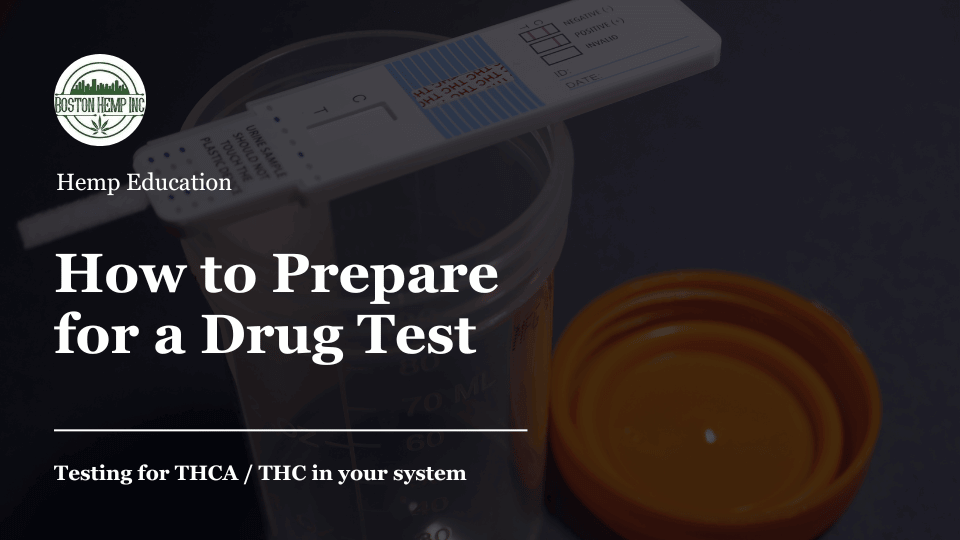How long does THCA stay in your system?
It really depends on several factors.
That’s why in this post we are going to cover the many factors involved in the metabolism of THC/THCa in your body.
So let’s dive it!
Key things to Takeaway from How Long THCA Stays in Your System
- THCA, which turns into THC, can remain in your body for around a month after you stop using it. This depends on how often you use it, your metabolism, and your body fat.
- Saliva tests can detect THCA for up to 24 hours after last use.
- Blood tests can detect THC-A for up to 12 hours after last use.
- Hair tests can detect THCA for up to 90 days after last use.
- There is no way to predict accurately how long THCA will stay in your system.
- To pass a drug test, avoid using cannabis for a minimum of 30 days before the test.
Additional Tips for Testing for THCA in Your Body:
- Drinking plenty of fluids can help to flush THCA out of your system more quickly.
- Exercising can also help to metabolize THC A more quickly.
- Some over-the-counter detox products claim to remove THCA from the body, but it is unclear if they work.
- Does THC-a show up in a drug test?
- If you’re not sure if you’ll pass a drug test, it’s safest to avoid using marijuana to be cautious.
Introduction: How long does THCA stay in your system?
Standard drug tests do not typically detect THCA.
It is important to understand, that THC-A does not remain in the body for an extended period.
Most drug tests focus on detecting THC or its byproducts, which the body produces as it breaks down THC.
Specialized tests can detect THCA cannabinoids present in cannabis, specifically.
Several factors determine the length of time THCA, THC, and their metabolites can be detected in the body.
Factors that affect drug test results include how often and how much cannabis is used, metabolism, and the type of test.
Some of the most common tests are a urine test, saliva test, although less common, can also identify THC and THCA depending on the sensitivity and the timing since use, blood test, or hair test).
The test’s sensitivity also plays a significant role.
THCA, THC, and their byproducts can stay in the body longer for frequent cannabis users than for occasional users, cause it can kinda start to build up in the tissues and cells.
THC and its byproducts can accumulate in fat cells and release slowly over time.
As a result, individuals who use cannabis more frequently or in more significant amounts may have a longer detection window.
Metabolism also plays a role in the duration of THCA and THC in the system.
People who have a fast metabolism can eliminate THCA, THC, and their byproducts more quickly.
As a result, they may be detectable for a shorter period of time.
Conversely, individuals with a slower metabolism may take longer to eliminate these compounds, resulting in a longer detection window.
The type of drug test being used is another factor to consider. Different drug tests have varying sensitivities and detection windows for THCA, THC, and their metabolites.
Urine tests, for example, can detect THC metabolites for up to 30 days after cannabis use. Saliva tests have a detection window of up to 72 hours, while blood tests have a window of about 1-2 days.
Hair tests are the most sensitive and can detect THC metabolites for up to 90 days or longer.
Sensitivity of the THCA (THC) Test
The sensitivity of the drug test can also impact the duration of THCA and THC in the system.
More accurate tests can detect tiny amounts of THCA, THC, and their byproducts.
This can extend the window for detection compared to less accurate tests.
Several factors can influence how long THCA, THC, and their byproducts remain in the body.
However, it is difficult to predict the exact duration of their presence.
Each individual is unique, and the rate of elimination can vary.
If you have a drug test coming up, it’s crucial to prepare.
You can do this by staying hydrated, living healthily, and following detox advice from experts.
Lastly, there are several factors, including the frequency and quantity of cannabis use, an individual’s metabolism, the type of drug test being used, and the sensitivity of the test, can affect the duration of THCA, THC, and their metabolites in the system.
These factors provide a general idea of how long THCA can be detected. It is important to understand that each person is unique and elimination rates can vary.
Therefore, it’s best to take appropriate measures and be prepared if facing a drug test since THCA and drug tests are closely linked.

How to Prepare for a Drug Test
Preparing for a drug test can be a nerve-wracking experience, especially if you have used cannabis with THCA or THC in it recently.
There is no guaranteed way to ensure a negative test result.
However, you can lower the likelihood of testing positive for THCA or THC metabolites by following specific measures.
Taking these steps can help reduce the chances of a positive test result.
1. Stay hydrated:
Drinking plenty of water can help flush out toxins from your body, including THC metabolites.
Aim to drink at least 8 glasses of water daily in the days leading up to your drug test.
To know how much water to drink, divide your weight in half, and drink that amount in ounces.
Be careful not to drink too much water on the test day. This can make your sample too diluted, and you may need to be tested again.
2. Exercise regularly:
Physical activity can help boost your metabolism and accelerate the elimination of THC metabolites from your system.
Engaging in aerobic exercises, such as running or cycling, can be particularly effective.
Aim for at least 30 minutes of moderate to intense exercise each day leading up to your drug test.
3. Maintain a healthy diet:
Eating a balanced diet rich in fruits, vegetables, and lean proteins can support your body’s natural detoxification processes.
This type of eating can help keep your methylation pathways open and allow your body to naturally detoxify.
Certain foods, such as grapefruit, beets, and leafy greens, are believed to have detoxifying properties.
Don’t eat fatty or greasy foods. THC can accumulate in fat cells and be released gradually, which can impact drug test results.
4. Consider detoxification products:
Many detox products claim to remove THC from your body.
These products often come in the form of detox drinks or detox kits that include herbal supplements.
However, it is important to note that the effectiveness of these products is not guaranteed, and some may even be ineffective or potentially harmful. So be careful and know do your research.
5. Avoid Cannabis Use:
The most effective way to ensure a negative drug test result (meaning you pass the test) is to abstain from using cannabis or marijuana products altogether.
THC and its metabolites can remain in the body for an extended period, so it is best to refrain from using weed products for at least a few weeks before a drug test.
It is important to keep in mind that these strategies may not guarantee a negative drug test result, as individual factors can vary.
The best approach is to be prepared for an upcoming drug test, follow these recommendations, and consult with a healthcare professional if you have any concerns.
Additionally, it is always a good idea to familiarize yourself with the specific policies and procedures of the organization conducting the drug test to ensure compliance.

THCA Detection Methods and Windows
How long does it take to get THCa out of your system?
The THCA detection window can vary depending on several factors.
The detection window refers to the period during which THCA can be detected in the body after THCa varieties of cannabis use.
While there is no definitive answer to how long THCA can stay in the system, it is generally believed that THCA can be detected for a shorter period compared to THC.
THCA is the non-psychoactive precursor to THC, and it is converted into THC when it is heated, such as through smoking or vaping.
This means that THCA is typically present in fresh cannabis plants or when marijuana or hemp is consumed in its raw form.
However, THCA can also be detected in specialized drug tests, although it is not commonly included in standard screenings.
As mentioned previously, the length of the THCA detection window can vary depending on factors such as the frequency and amount of marijuana use, an individual’s metabolism, and the type of drug test being used.
Regular and heavy marijuana users may have THCA present in their system for a longer period compared to occasional or infrequent users.
This is because THC and its metabolites can accumulate in fat cells and be released slowly over time.
The Role of Metabolism in Eliminating THCA/THC from the body
Metabolism also plays a role in the THCA detection window. Individuals with a faster metabolism may eliminate THCA more quickly, resulting in a shorter detection window.
On the other hand, individuals with a slower metabolism may take longer to eliminate THCA from their system, leading to a longer detection window.
The type of drug test being used also affects the THCA detection window, determining how likely it is for THCA to show on a drug test.
Urine tests, which are the most common type of drug test, can detect THC metabolites for up to 30 days after cannabis use, showcasing the importance of understanding how long weed metabolites like THCA can show on a drug test.
However, the detection window for THCA may be shorter compared to THC.
Saliva tests have a shorter detection window of up to 72 hours, while blood tests have a detection window of about 1-2 days.
Hair tests, on the other hand, can detect THC metabolites for up to 90 days or longer.
It is important to note that the THCA detection window is not an exact science.
Each individual is unique, and the rate of elimination can vary.
Factors such as hydration, overall health, and lifestyle choices can influence the detection window.
Therefore, it is best to take appropriate measures and be prepared if facing a drug test, such as staying hydrated and leading a healthy lifestyle.
In conclusion, the THCA detection window can vary depending on factors such as the frequency and amount of cannabis use, metabolism, and the type of drug test being used.
While there is no definitive answer to how long THCA stays in the system, it is generally believed to have a shorter detection window compared to THC.
It is important to be aware of these factors and take appropriate measures if facing a drug test. The more important things to be concerned about is the tests for THC and THC metabolites in your system.
THC Metabolite Detection Window
Understanding the THC metabolite detection window is crucial for individuals who want to pass a drug test for weed.
THC metabolites are the byproducts of THC breakdown in the body and can be detected in various types of drug tests.
What is the detection window?
The detection window refers to the period during which these metabolites can be detected after cannabis use.
Metabolism also plays a significant role in the THC metabolite detection window.
Individuals with a faster metabolism may eliminate THC metabolites more quickly, resulting in a shorter detection window.
Conversely, individuals with a slower metabolism may take longer to eliminate THC metabolites, leading to a longer detection window.
It is important to note that the THC metabolite detection window is not an exact science and can vary from person to person.
Various factors can influence the detection window, and no method can guarantee a negative drug test result.
However, understanding the factors that affect the detection window can help individuals make informed decisions and take appropriate measures to increase their chances of passing a drug test.
In conclusion, the THC metabolite detection window can vary depending on factors such as the frequency and amount of cannabis use, metabolism, and the type of drug test being used.
THCA / THC Detection Methods
Several methods are available for detecting THCA in the body after cannabis use.
These methods are used in drug testing to determine if an individual has recently used cannabis with THC / THCA in it.
Understanding these detection methods can provide valuable information for individuals who want to pass a drug test for THCA.
1. THCA Urine Test:
Urine tests are the most common type of drug test and can detect THCA metabolites for up to 30 days after cannabis use.
This method is widely used because of its convenience and non-invasiveness.
The urine sample is collected and tested for the presence of THCA metabolites, indicating recent THCa / THC rich cannabis use.
2. THCA Blood Test
Blood tests can also be used to detect THCA in the body.
However, THCA is quickly metabolized into THC and then eliminated from the bloodstream.
As a result, THCA is typically not detectable in blood tests, but understanding how THCA can show on a drug test is important.
However, if a blood test is conducted immediately after cannabis use, THCA may be detectable for a few hours.
3. THCA Saliva Test
Saliva tests are another method used for detecting THCA in the body.
Similar to blood tests, THCA is not commonly detected in saliva tests.
However, if a saliva test is conducted immediately after cannabis use, THCA may be detectable for a short period, typically up to a few hours.
4. THCA Hair Test
Hair tests have the longest detection window and can detect THCA metabolites for up to 90 days or longer.
This method involves collecting a hair sample and testing it for the presence of THC.
The length of the hair sample and the rate of hair growth can influence the detection window.
It is important to note that these detection methods have different sensitivities and detection windows, which can vary depending on individual factors.
Factors such as the frequency and amount of cannabis use, metabolism, and the type of drug test being used can all influence the results of the test.
Additionally, it is crucial to consider that the THCA detection window is not an exact science and can vary from person to person.
As we mentioned, to increase the chances of passing a drug test for THCA, it is advisable to abstain from using cannabis for a significant period before the test.
This allows the body to eliminate the THCA metabolites naturally, which is crucial for those preparing for an upcoming drug test.
Also important to stay hydrated, lead a healthy lifestyle, and consult with a healthcare professional or drug testing expert for personalized advice.
In conclusion, there are several methods available for detecting THCA in the body, including urine tests, blood tests, saliva tests, and hair tests.
Understanding these detection methods and the factors that can influence the results can help individuals make informed decisions and take appropriate measures to increase their chances of passing a drug test for THCA.

How long THCA Stays in the Different Parts of Your Body
THCA, the non-psychoactive precursor to THC, can be detected in various parts of the body after cannabis use.
While the exact duration may vary depending on individual factors, here is a general idea of how long THCA can stay in different parts of the body:
1. How long does THCA show up in your Urine:
THCA can be detected in urine for a shorter period compared to THC.
For occasional or infrequent users, THCA may be detectable within a few days after cannabis use.
However, for regular or heavy users, THCA can be detected for up to a week or more.
2. How long does THCA stay in your Blood:
THCA is quickly metabolized into THC and then eliminated from the bloodstream.
As a result, THCA is typically not detectable in blood tests.
However, if a blood test is conducted immediately after cannabis use, THCA may be detectable for a few hours.
3. How long does THCA stay in your Saliva:
Similar to blood tests, THCA is not commonly detected in saliva tests.
However, if a saliva test is conducted immediately after cannabis use, THCA may be detectable for a short period, typically up to a few hours.
4. How long does THCA stay in your Hair:
THCA can be detected in hair follicles for a longer duration compared to other parts of the body.
Hair tests can detect THCA for up to 90 days or longer, depending on the length of the hair sample and the rate of hair growth.
It is important to note that these time frames are approximate and can vary depending on individual factors such as metabolism, frequency and amount of marijuana use, and the sensitivity of the drug test being used.
Additionally, these time frames are based on general guidelines and may not apply to everyone.
If you have concerns about THCA detection in your system, it is always best to consult with a healthcare professional or drug testing expert for personalized advice.
In conclusion, THCA can stay in different parts of the body for varying durations.
While it is generally believed that THCA has a shorter detection window compared to THC, the exact duration can be influenced by individual factors.
Understanding how long THCA can stay in your system can help you prepare for a drug test and make informed decisions.

How to Pass a Drug Test for Weed
Passing a drug test for weed can be a crucial concern for individuals who have recently used weed and need to ensure a negative test result.
While there is no guaranteed method to pass a drug test, there are strategies you can employ to increase your chances of testing negative for THCA or THC metabolites.
There will be some repetition here, from above, but if you do these things you are much more likely to know how to pass a weed drug test:
1. Time is crucial:
The most effective way to pass a drug test is to abstain from using marijuana for a significant period before the test.
THC and its metabolites can remain in the body for an extended duration, so it is advisable to refrain from using marijuana for at least a few weeks leading up to the test. The longer the period of abstinence, the higher the likelihood of a negative result.
2. Detoxification:
There are various detoxification methods and products available that claim to help eliminate THC metabolites from the body.
These include detox drinks, detox kits, and herbal supplements.
However, it is important to note that the effectiveness of these products is not guaranteed, and some may even be ineffective or potentially harmful. It is advisable to consult with a healthcare professional before using any detoxification products.
3. Exercise and sweat:
Engaging in regular physical activity can help accelerate the elimination of THC metabolites from your system.
Sweating through exercise can assist in flushing out toxins, including THC metabolites.
Focus on aerobic exercises that increase your heart rate and induce sweating, such as running, cycling, or using a sauna.
However, avoid intense exercise immediately before a drug test, as this can temporarily increase THC metabolite levels in the body.
4. Hydration:
Drinking plenty of water can help dilute the concentration of THC metabolites in your urine, potentially lowering the chances of detection in a drug test.
Aim to drink at least 8 glasses of water per day in the days leading up to your test.
However, be cautious not to consume excessive amounts of water on the day of the test, as this can result in a dilute sample, which may require retesting.
5. Consider natural detoxifiers:
Certain foods and beverages are believed to have natural detoxifying properties that may aid in the elimination of THC metabolites.
These include cranberry juice, lemon water, green tea, and foods high in fiber. Incorporate these natural detoxifiers into your diet in the days leading up to the test.
6. Understand the drug test:
Familiarize yourself with the specific policies and procedures of the organization conducting the drug test.
This will help you understand the type of drug test being used, its detection window, and any specific guidelines or requirements.
Being well-informed will allow you to make appropriate preparations and increase your chances of passing the test.
Remember, there is no foolproof method to pass a drug test, and individual factors can vary.
Being prepared, following these recommendations, and consulting with a healthcare professional if you have any concerns are crucial.
Additionally, it is always advisable to adhere to the laws and regulations regarding drug use in your jurisdiction.
How to Detox from Weed
Detoxing from weed can be a necessary step for individuals who want to cleanse their system of THC and its metabolites.
While there is no guaranteed method to detox from weed quickly, there are several strategies you can follow to support your body’s natural detoxification processes and help eliminate THC from your system.
1. Hydrate:
Drinking plenty of water is essential when detoxing from weed.
Water helps flush out toxins and can dilute the concentration of THC metabolites in your urine.
Aim to drink at least 8 glasses of water per day to stay properly hydrated.
You can also consider incorporating other hydrating fluids like herbal teas, coconut water, or infused water with lemon and cucumber for added detoxification benefits.
2. Eat a clean diet:
Focus on consuming a balanced and nutritious diet to support your body’s detoxification process.
Include plenty of fruits, vegetables, whole grains, and lean proteins in your meals.
These foods provide essential vitamins, minerals, and antioxidants that can aid in flushing out toxins.
Avoid processed foods, sugary snacks, and excessive amounts of caffeine and alcohol, as they can hinder the detoxification process, which is critical when preparing for a drug test to detect substances like THCA.
3. Increase fiber intake:
Fiber plays a crucial role in promoting regular bowel movements and eliminating waste from the body.
Consuming foods high in fiber, such as whole grains, legumes, fruits, and vegetables, can help speed up the elimination of THC metabolites through the digestive system.
Additionally, fiber can help reduce cravings and stabilize blood sugar levels, making it easier to resist the temptation to use marijuana during the detox process.
4. Engage in regular exercise:
Exercise not only helps boost your metabolism but also promotes sweating, which can aid in the elimination of toxins, including THC metabolites, through the skin.
Engage in activities that get your heart rate up and make you sweat, such as jogging, swimming, or practicing hot yoga.
Aim for at least 30 minutes of moderate to intense exercise most days of the week to support your body’s detoxification process.
5. Get enough sleep:
Adequate sleep is essential for overall health and well-being, including detoxification.
During sleep, your body goes through a natural detoxification process, repairing and rejuvenating cells.
Aim for 7-9 hours of quality sleep each night to support your body in detoxing from weed effectively.
6. Consider natural detoxifiers:
Certain herbs and supplements are believed to have detoxifying properties that can support the elimination of THC and THCA metabolites from the body.
Milk thistle, dandelion root, and burdock root are commonly used in herbal detox formulas and can help support liver function, which plays a crucial role in detoxification.
However, it’s important to consult with a healthcare professional before starting any new supplements to ensure they are safe and appropriate for you.
Remember, detoxing from weed takes time and commitment.
Results may vary depending on individual factors such as metabolism, frequency of use, and overall health.
It’s important to be patient and consistent with your detox efforts.
Additionally, always adhere to the laws and regulations regarding cannabis use in your jurisdiction.

Common Questions On the THCA Detection Window
Q: How long does THCA stay in your system?
A: The length of time THCA remains detectable in your system depends on several factors like frequency of use, metabolism, and the type of drug test used. Generally, THCA can be detected in urine for up to a few days for infrequent users, but it may stay in the system for as long as 45 days for heavy users.
Q: Can consuming THCA cause you to fail a drug test?
A: Yes, consuming THCA products such as thca vapes, thca prerolls, or thca tinctures, can lead to a positive drug test. This is because THCA can convert into THC in the body, and most drug tests look for THC metabolites.
Q: Do all drug tests detect THCA?
A: Not all drug tests can detect THCA specifically, as most standard drug tests are designed to detect THC. However, advanced drug screening methods, like certain confirmation tests, may be able to identify the presence of THCA in the system.
Q: How quickly does THCA convert into THC in the body?
A: THCA begins to convert into THC when exposed to heat, a process known as decarboxylation. However, once consumed, the rate at which THCA converts to THC in the body can vary, influencing the outcome of a drug test.
Q: Can you buy THCA legally?
A: The legality of purchasing THCA products, such as thca vapes or thca prerolls, varies depending on regional laws and if they show on a drug test depends on several factors.
In places where cannabis is legalized, you can typically buy THCA products legally. Always check your local regulations before purchasing.
Q: Are there any drug tests that specifically test for THCA?
A: Yes, there are specific types of drug tests that can detect THCA, particularly by utilizing advanced analytical techniques. However, these tests are less common and more costly than standard THC tests.
Q: What type of drug test is most likely to show THCA?
A: The type of drug test used greatly influences whether THCA will be detected.
Blood tests and certain highly sensitive urine tests may identify THCA, but most standard urine drug tests focus on identifying THC metabolites rather than THCA itself.
Q: How can I eliminate THCA from my system faster?
A: Eliminating THCA from your system involves the same principles as detoxifying from THC: hydration, diet, exercise, and time. However, there is no foolproof method to accelerate the process significantly, as it largely depends on individual metabolism and body composition, especially when considering how long weed metabolites like THCA show on a drug test.
Q: How does THCA compare to THC in terms of psychoactivity?
A: THCA is non-psychoactive, which means it does not produce the “high” associated with THC.
However, THCA can convert into psychoactive THC through decarboxylation, which can occur when smoking thca flower or during the body’s metabolization process, affecting how THC and THCA show on a drug test.
Q: Will smoking THCA flower show up on a drug test?
A: Yes, smoking THCA flower can cause you to test positive on a drug test. Although THCA itself is non-psychoactive, the heat from smoking can convert THCA into THC, the compound most drug tests screen for.
Conclusion to How Long THCA Stays in Your System
In conclusion, comprehending the duration cannabinoids, particularly THCA and THC found in marijuana, linger in your system is crucial for individuals undergoing a drug test.
The detection window varies based on factors like marijuana usage frequency, metabolism, and the type of drug screening employed, whether it be a urine test, saliva test, blood test, or even a hair test.
Understanding that THC is stored in fat cells further emphasizes the importance of knowing your body’s metabolism and the impact it can have on the drug test results.
The presence of cannabinoids in fat cells contributes to a prolonged detection window, affecting the time it takes for THC metabolites to leave your system.
Taking proactive steps can enhance your chances of testing negative.
Maintaining adequate hydration, regular exercise, and a wholesome diet can expedite the metabolism and elimination of THC metabolites.
Exploring detoxification products may offer an extra edge, although their efficacy isn’t guaranteed.
Individual differences play a significant role, influencing the elimination rate.
Hence, it’s vital to adopt suitable measures and be ready for a drug test.
By adhering to these strategies and seeking advice from a healthcare professional if necessary, you can boost your likelihood of a negative test result.
Remember, the optimal approach is abstinence from marijuana to ensure a negative drug test outcome.
Refraining from usage for a few weeks before the test is the most effective way to eliminate THC and its metabolites.
Lastly, familiarize yourself with the organization’s drug test policies and procedures regarding cannabinoids, psychoactive substances, and the legality of cannabis.
Armed with knowledge and preparation, you can confidently navigate the drug testing process and understand its nuances, be it in urine, saliva, blood, or hair tests.
What are the NEXT STEPS:
Please share this article with others who may be interested or whom could benefit from it.
If you have any other questions for us on the topic of THCA detection in the body feel free to send us a message with your questions.
We’ve got you covered if you’re looking for THCA products for sale online.
Here’s a list of our most popular THCA hemp products by Boston Hemp Inc:

